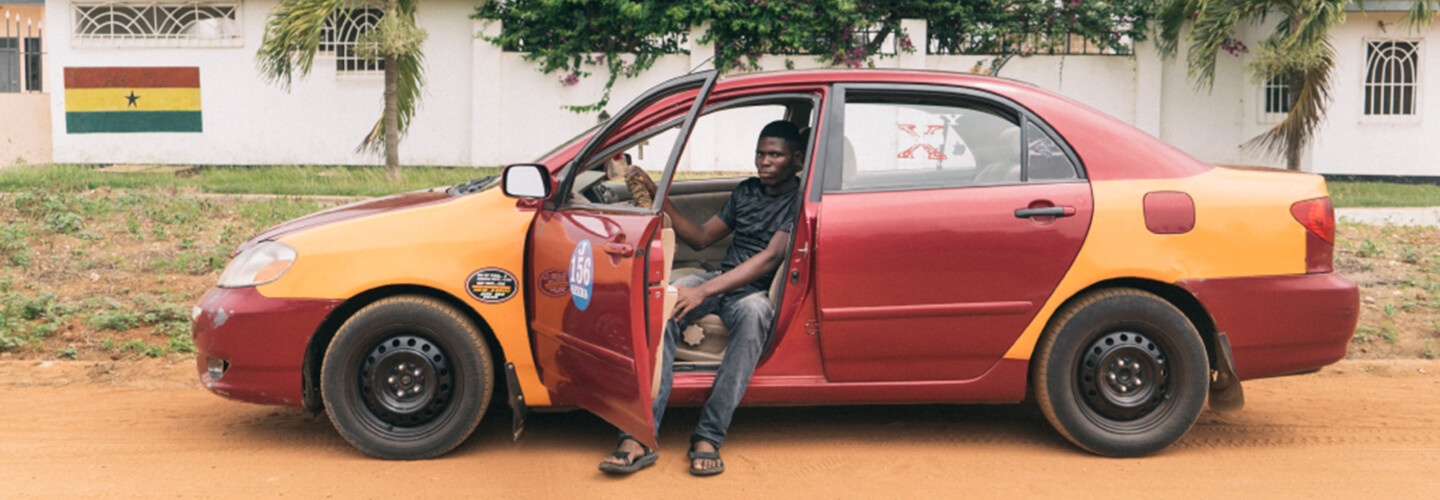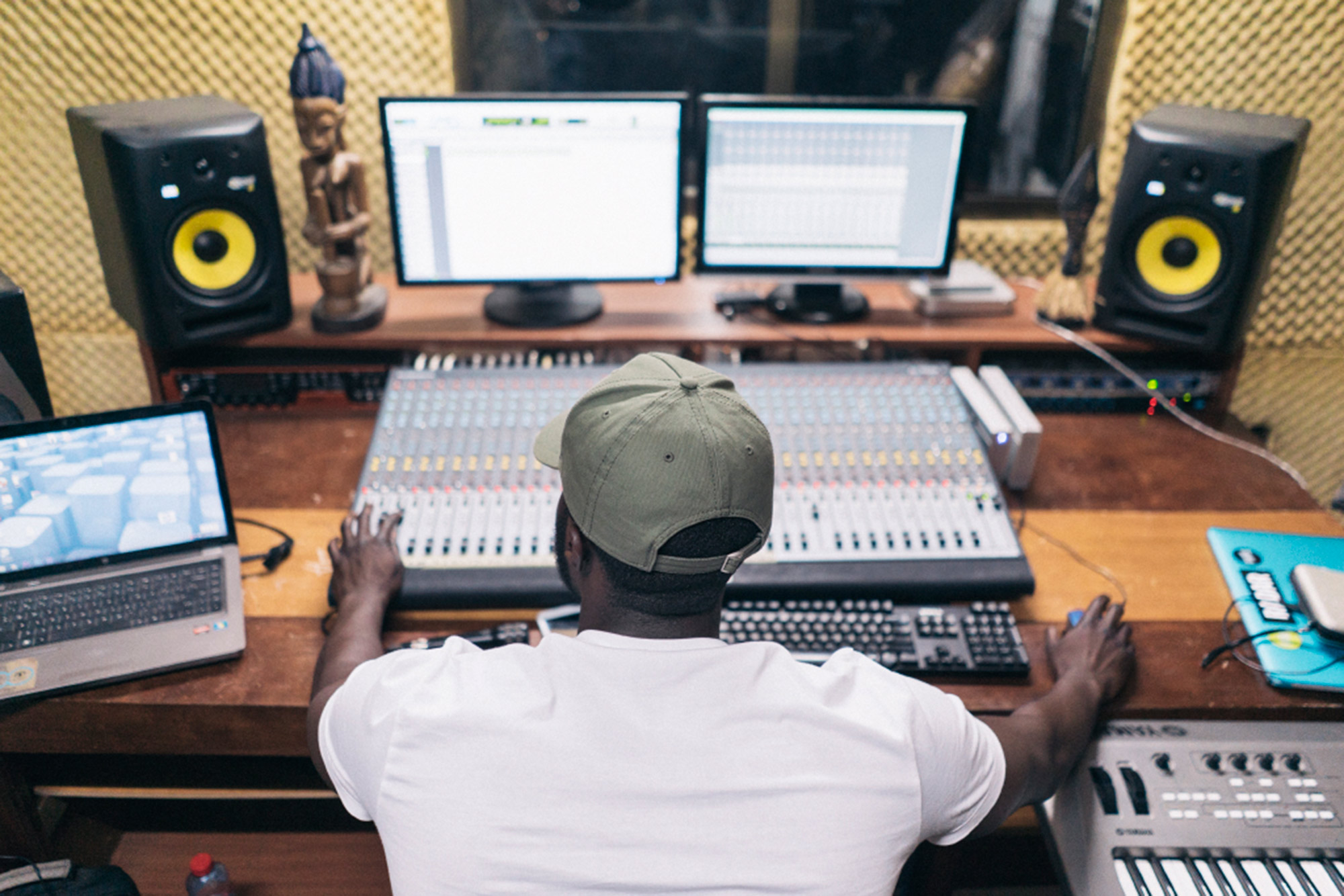
Last appearing on DN with Gqom music documentary Woza Taxi, Tommaso Cassinis returns today with the newly released Yenkyi Taxi. Partnering with London music producer Hagan, Tommaso travelled to Accra, Ghana in search of the heritage which underpins Ghanaian contemporary music and its influence on the European club scene. I spoke to Tommaso about the importance of a well planned, yet flexible approach to documentary filmmaking and the intangible power of music.
How did the partnership with and documentation of Hagan’s trip come about and how involved was he in shaping Yenkyi Taxi. Were there specific things he wanted the film to convey about his journey into musical heritage?
This all started from Hagan’s guest appearance on the Pattaya show [Radar Radio], which Nan Kolè invited him to. Yenkyi Taxi is produced by Crudo Volta with writing and art direction by Mike ‘Michele’ Calandra Achode who interviewed Hagan during the show. During the interview, Hagan was talking about his plans to go to Ghana for his Grandma’s birthday as well as his intentions to make music out there. Straight after the show Michele proposed an idea for his collective Crudo Volta to travel with Hagan and film his journey. He was already fond of the work Mike had done with Nan Kolè on South Africa and the evolution of gqom. So when he pitched the idea, Hagan was already thinking about how high in quality the results would be. It was from that moment that he started researching what possible producers he could hit up in Ghana and the studios he could work in.
So Hagan was deeply involved in shaping of Yenkyi Taxi. Together with Michele he decided what artists to include in the documentary and they shared quite the same goal. To Hagan it was understanding how his African roots have influenced his music, both in a direct and indirect way, to Michele it was understanding how the social context and traditions convey into African artists as Hagan.
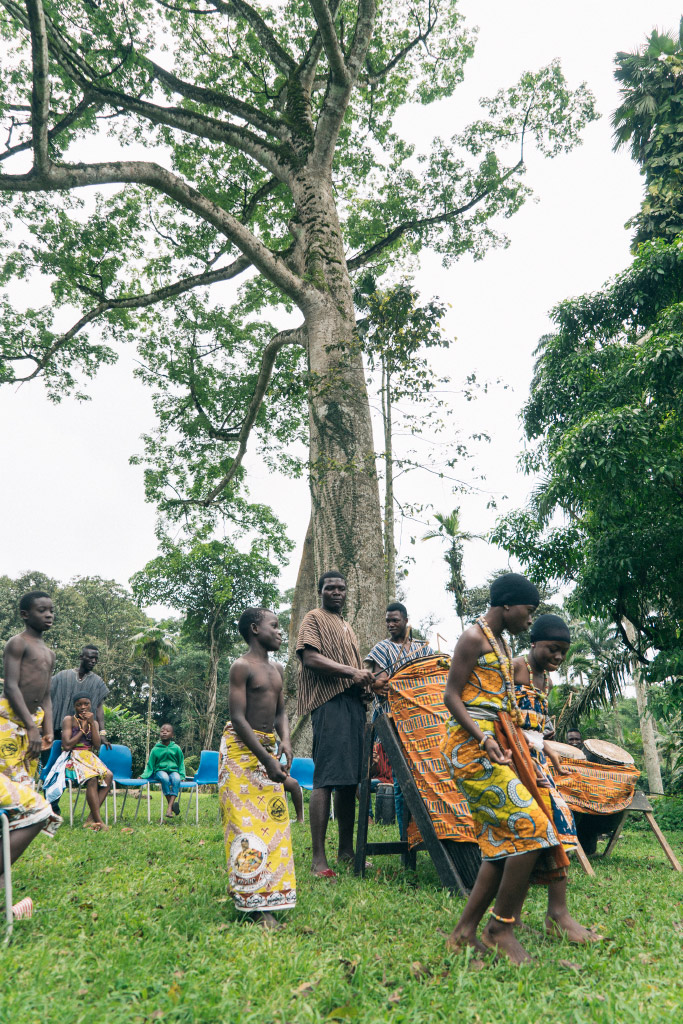
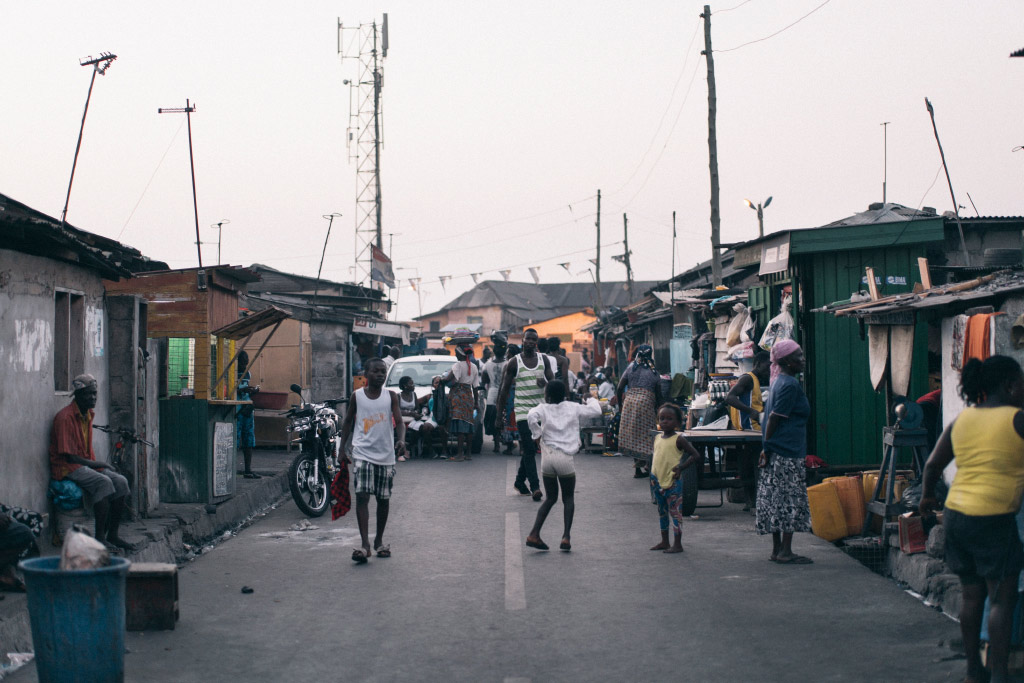

How did you map out the film during preproduction and how close did you ultimately adhere to that plan?
Working on Woza Taxi was really instructive in terms of preproduction and we mapped out the film pretty precisely. Before we departed we already knew there might have been four macro categories we wanted to include: the studio session, the church, the traditional musicians and clubbing/festivals shots. But when you talk about documentaries you always have to keep in mind that plans will definitely change once you’re traveling. We had to face an unexpected festival, schedule changing on artists’ appointments and we didn’t manage to shoot as many club scenes as we would have wanted to.
When you talk about documentaries you always have to keep in mind that plans will definitely change once you’re traveling.
In return we had a wonderful trip to Volta Lake and more naturalistic situations that perfectly matched with the spiritual part of the film. So we went pretty close to the initial plan and I’m super happy about how we worked it out, I think we have made big steps since the previous work with Crudo.

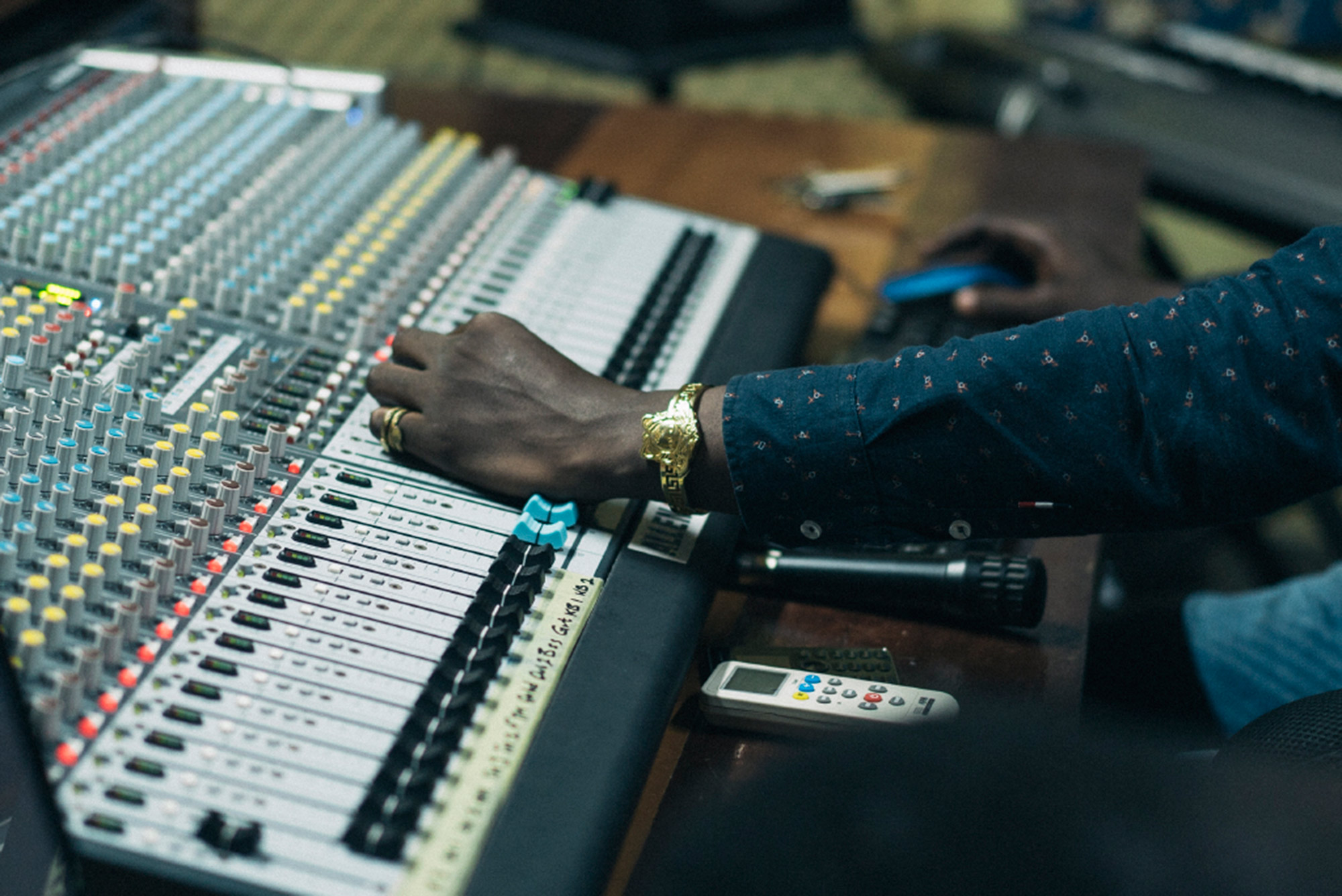
You overcame hurdles of language and location in Woza Taxi, did that experience (and Petit Taxi before it) ease the path of production for this project? What did you carry forward from that experience to pave the way this time?
I think overcoming hurdles of language and locations is the most challenging aspect of filming documentaries. As I was saying, there is always something that can go wrong and initial plans can change during the production process, certainly the experience in Woza Taxi helped us a lot. But I must admit that having someone with us has been extremely important. It was Lerato in Durban and Fianko in Accra. Involving a fixer is something that you cannot avoid if you want your production to proceed well.
The ‘…Taxi’ films all contain a shared mission to reveal the musical roots rarely considered by fans of current scenes. What do you feel a deeper understanding of these origins brings to the enjoyment and appreciation of music?
I’m a great music lover, I’ve always been interested in music and how it can communicate in such an intangible way. I think there is something in music that everyone can understand, it’s a free field in which everyone can have the same role. I’m not the best expert in genres, specific scenes or always updated on new trends. I had the chance to work with Crudo (and Michele in particular), who lives the music in such a spiritual way that it allowed me to deepen my knowledge in the genre scenes.
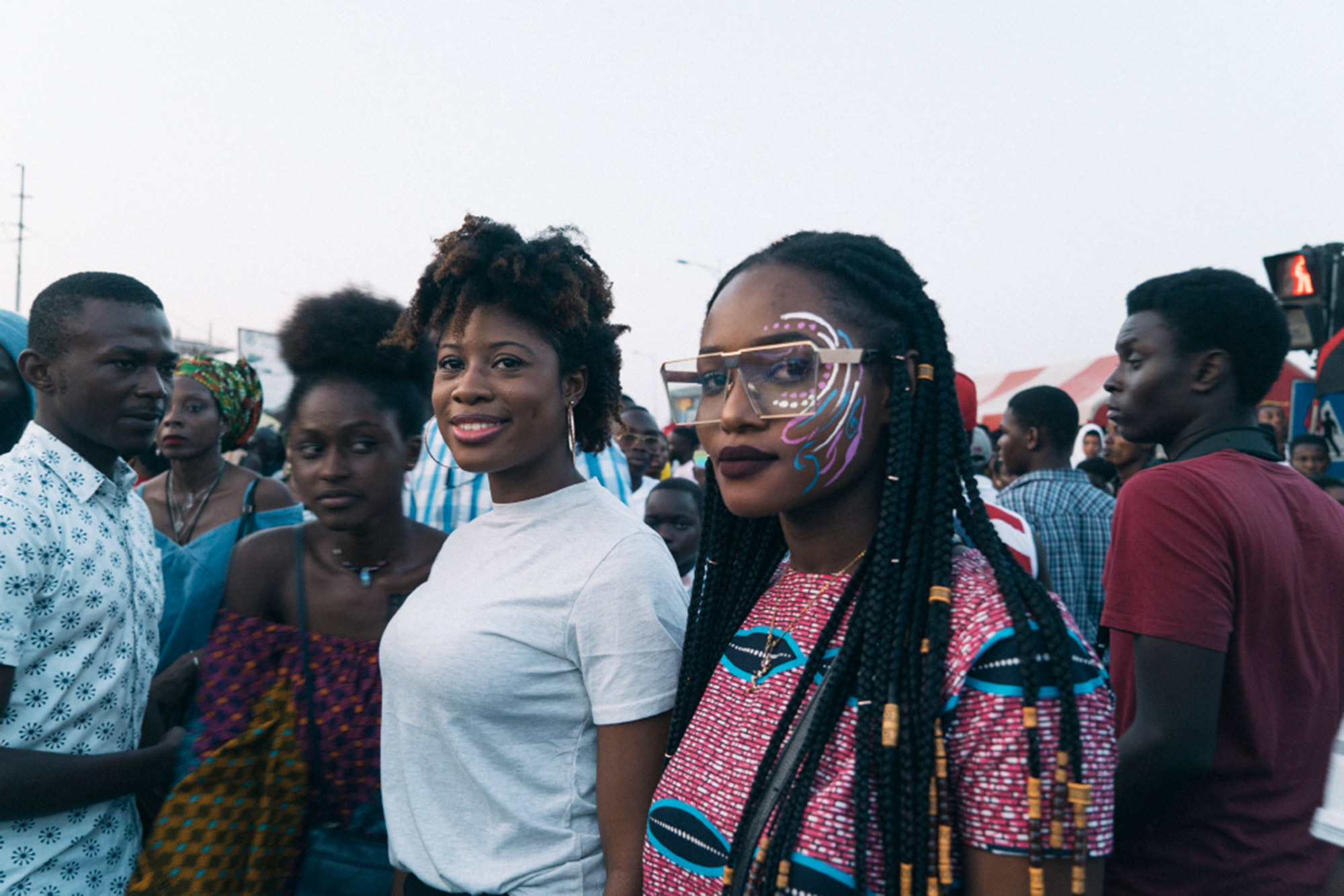
Music has the power to carry all human behaviors, our way to live in society, our spiritual demonstration and so on. I think this is something everyone will be interested in. This is what moved me in this project and I’m sure a lot of people will share the same enjoyment I’m having in filming it.
Any idea as to what we’ll see from you next?
We recently agreed on three more episodes with an important distribution company and we can’t wait to shoot in Mozambic, Nigeria and Etiopia. All three episodes will be out in 2019.

